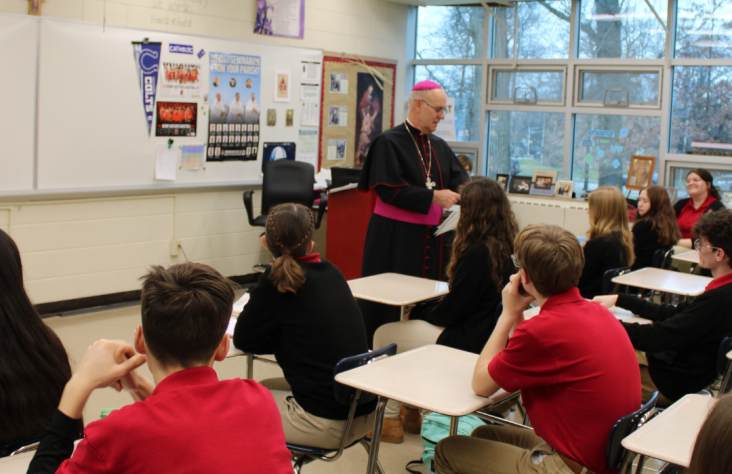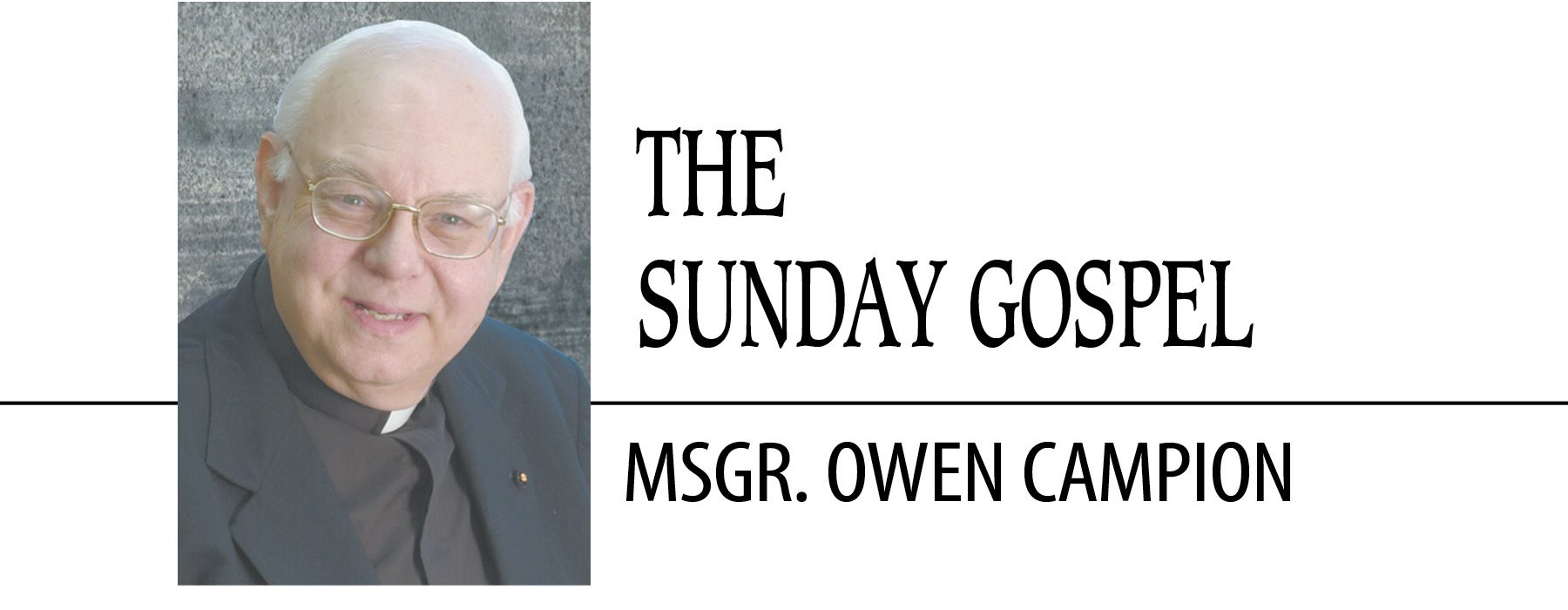December 4, 2021 // The Sunday Gospel
Let us make ready the way of the Lord
Second Sunday of Advent
Luke 3:1-6
The Book of Baruch provides the first reading for this Second Sunday of Advent. Baruch, not one of the major prophets, is relatively brief, certainly when the longer books of Ezekiel, Isaiah and Jeremiah are considered.
It also is among the books that almost all Protestant scholars called the Apocrypha. Baruch does not appear in the King James Version of the Bible.
Certain issues led to its omission from this renowned Protestant translation. At one time Baruch was presumed to have been written originally in Greek. The thinking was that no authentic Scripture could have been composed in any language other than Hebrew. Scholars now believe that Baruch first was written in Hebrew, but that only Greek translations survive.
For Catholics, historically and now, most important is the fact that Christians from early times venerated Baruch as part of the Bible. The Church officially long has recognized it as such.
In any case, when Baruch was written, great problems beset God’s people. A most severe trial was that many of the people were living outside the Holy Land. No happy choice caused this displacement. Political oppression or poverty forced the people to go elsewhere.
This book encouraged these suffering, exiled people, reassuring them that God would not forsake them and that God’s justice and mercy would prevail over all.
The Letter to the Philippians furnishes the next lesson. Written to the Christians of Philippi, an important city in the ancient Roman Empire, the letter urges the Philippians loyal to the Lord to be steadfast in their faith, come what may, until the second coming of Jesus.
As so often found elsewhere in the New Testament, this reading strongly states that one-day, at a time unknown, Jesus will come again in triumph and judgment.
St. Luke’s Gospel is the source of the last reading. This reading centers upon Jesus, although John the Baptist is quite evident in the reading. Carefully constructed, the Gospel presents the coming of Jesus as extraordinarily, indeed uniquely, important in the unfolding of human affairs.
John the Baptist recognized Jesus, seeing in the Lord’s coming the momentous entry of God and God’s mercy into human existence. Thus, John urged the people to prepare themselves to receive the Lord. Essential in this preparation was the personal rejection of sin.
John was a prophet and a holy man. In the Jewish mind, holiness, more than anything, gave persons special wisdom. John could be trusted. He spoke the truth.
To emphasize the importance of what was occurring, this Gospel takes pains in setting the presence of John and the future coming of Christ at an exact point in history, namely when Tiberius was emperor of Rome, Pilate was governor in Palestine and so on.
Finally, Jesus came as God’s promised redeemer. The prophets of old had yearned for the redeemer and had predicted the coming of a savior. When this messiah would come, all would be made right. The rough ways for people would be made smooth.
Reflection
When Baruch was written, times were very bad for the Jews. When Philippians and the Gospel of Luke were written, times were hard for Christians. Circumstances differed, but the condition of misery and hopelessness was the same.
On this Second Sunday of Advent, times are hard for many. COVID-19 still takes its tolls. Many suffer the effects of hurricanes or fires. Bitterness and doubt stalk the land. The results of sin still torment everyone.
All will be right if we admit Jesus into our lives. We must invite the Lord into our lives sincerely, by renouncing our sins, and by giving ourselves totally to God. John the Baptist calls us, as he called people in his generation, to be honest and to face facts.
The best news. Delivered to your inbox.
Subscribe to our mailing list today.






